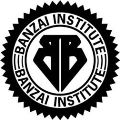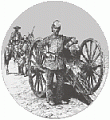Strategic communication is a vital activity for supporting our military operations and national interest. Information can affect attitudes, and ultimately behavior. It is one of the most important tools we have to shape the battlefield months and years in advance. It is indispensable now for fighting adversaries who employ non-traditional and asymmetric means. It can be effective in shaping memories of the past as well as planning for the future.
Communication can be a strategic weapon of mass influence to assure allies and dissuade and deter adversaries. It can give non-state actors state-like power to affect world events. Our adversaries are using communication and information very adeptly to do just that.
There are many unknowns about the future, but we know our adversaries will challenge us in the realm of ideas and information. They are doing so now. They are doing it effectively. We have not yet risen to the challenge. Strategy dictates that you play to your strengths and exploit the enemy’s weaknesses. Our enemies know where we are strong and where we are weak. The question is, “Do we know where we are falling short and are we committed and able to adapt to the challenge?”
Currently, OSD, DOS, USAID, the Joint Staff, and Combatant Commands are developing strategic communication plans across a range of functional issues and regional areas because of the importance of the “contest of ideas” in many of the battles we face today. Strategic communication can be a cost-effective way to operate along the continuum from persuasion to coercion...











Bookmarks